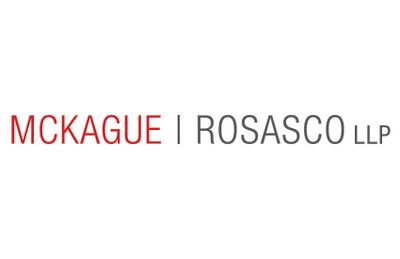PRESERVING HEALTH BENEFITS FOR WORKERS UNDER THE AMERICAN RESCUE PLAN ACT OF 2021: Premium Assistance for COBRA Continuation Coverage for Individuals and their Families
Employers are likely already familiar with the Consolidated Omnibus Budget Reconciliation Act of 1985 (COBRA) continuation of coverage for employees who have lost their employer-sponsored health insurance. COBRA generally applies to workforces with 20 or more employees, while a similar “mini-COBRA” for employees of smaller workforces might be an option through state continuation of coverage programs. However, continuation of health insurance coverage via COBRA is often a cost-prohibitive choice as the full premium amount must be paid by the affected employee along with an administrative fee.
With the enactment of the American Rescue Plan Act of 2021, signed into law on March 11, 2021, one of the numerous COVID-19 pandemic recovery efforts included a subsidized COBRA assistance program. Under section 9501 of Public Law 117-2, entitled “Preserving Health Benefits for Workers,” COBRA continuation coverage will be 100 percent subsidized for qualifying individuals.
Who qualifies for subsidized COBRA?
To qualify for subsidized COBRA, you must be an “Assistance Eligible Individual” (AEI), defined as an individual who qualifies for COBRA due to involuntary termination, other than for gross misconduct, or reduction in hours that resulted in a loss of employer-sponsored health insurance. To receive the benefit, an AEI must actively elect coverage. The coverage period begins April 1, 2021, and ends September 30, 2021.
This definition, however, invites some questions for employers. During a pandemic, what constitutes involuntary termination? What if an employee quits his job due to pandemic concerns? What if an employee cuts back on his hours to care for a child whose school has been closed? The U.S. Department of Labor will likely be providing guidelines soon to help clarify these types of issues. Because of the employer notice requirements explained below, it may behoove employers to start assembling a list of employees who are eligible for the new COBRA election period. In addition to tabulating which employees have been terminated involuntarily or whose hours have been reduced, employers will have to go back almost 18 months to gather data on COBRA-eligible employees who may be AEIs.
Subsidized COBRA applies to major medical plans, any size, self-insured or fully insured. Although it does not apply to health care flexible spending accounts, it is not certain whether they apply to dental or vision plans. This will presumably be explained in the guidelines as well.
How does the new COBRA election opportunity work?
The American Rescue Plan Act also allows those who would have been eligible to enroll in COBRA coverage but did not enroll, as well as those who enrolled in COBRA but then unenrolled, to join (or re-join) COBRA coverage. However, if the COBRA coverage window (either 18 or 36 months from their qualifying event) has passed, then COBRA election is not an option. Also, coverage cannot extend beyond the original 18 or 36 month window.
What are the new notice requirements for employers?
In addition to already-existing COBRA general notice and election notice requirements, the Act brings with it new notice requirements for employers. Here are the need-to-knows:
- Employers must notify AEIs by May 31, 2021, of the special election opportunity. The AEI’s 60-day election period begins to run as soon as the employer provides the special election opportunity notices.
- Employers must notify AEIs who become eligible to elect COBRA during the subsidy period of the subsidy’s availability. The Department of Labor will provide a model notice by April 10, 2021, for employers to use, so employers should look for these guidelines coming soon. Employers must provide the notice by May 30, 2021. Supplements to previously-provided COBRA notices can satisfy the requirement.
- Employers will need to inform AEIs no more than 45 days and no less than 15 days of the expiration date of the COBRA subsidies. The Department of Labor will also issue a model notice for subsidy termination by April 25, 2021.
Employer tax credits
Employers subject to federal COBRA (usually with 20 or more employees) can claim an advanceable/refundable tax credit for group health plans, self-insured or partially self-insured plans, including health reimbursement arrangements (HRAs). Note that if the plan is fully-insured and the employer is not subject to federal COBRA due to its small size, then the insurance company instead will be eligible for the credit.
Eligible employers will receive a tax credit equal to the subsidized COBRA premiums paid by the employer. The maximum quarterly credit is limited to the employer’s Medicare payroll taxes for that quarter. The COBRA tax credit may not be claimed on the same costs as the Families First Coronavirus Response Act (FFCRA) paid leave credits or Employee Retention Tax Credit. Further, premiums claimed through the COBRA tax credit may not be included in Paycheck Protection Program (PPP) loan forgiveness.
These new administrative obligations, such as the COBRA notice requirements and the filing process with respect to the payroll tax credits, may seem overwhelming for employers. Contact McKague Rosasco LLP with any questions on how to handle the new rules or for any other employer-related issues that may arise with regard to the American Rescue Plan Act.

